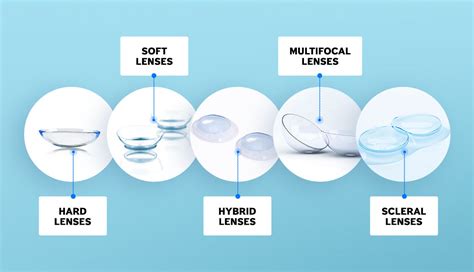Your Age & Contact Lens Options: A Comprehensive Guide
Choosing the right contact lenses can significantly impact your comfort and vision. But did you know that your age plays a crucial role in determining the best options available to you? As we age, our eyes change, and so do our needs. This comprehensive guide explores the relationship between age and contact lens suitability, helping you make informed decisions about your eye health.
What are the Different Types of Contact Lenses?
Before delving into age-specific considerations, let's briefly review the main types of contact lenses:
- Soft contact lenses: These are the most common type, made from flexible materials like silicone hydrogel or hydrogel. They are generally comfortable and easy to handle.
- Rigid gas permeable (RGP) lenses: These lenses are made from firmer materials and provide sharper vision, especially for those with astigmatism or irregular corneas. They often require a longer adjustment period.
- Multifocal contact lenses: Designed for individuals with presbyopia (age-related loss of near vision), these lenses incorporate different powers to correct vision at various distances.
- Toric contact lenses: These correct astigmatism, a refractive error that causes blurry vision.
How Does Age Affect Contact Lens Choice?
Your age significantly influences which type of contact lens is most suitable for you. Let's examine the key age groups and their common needs:
Teens and Young Adults (13-25):
This age group generally enjoys good eye health and often opts for soft contact lenses, particularly disposable daily or monthly varieties. The convenience and low maintenance are attractive features. However, it's crucial to emphasize proper hygiene and care to prevent infections.
Adults (25-45):
Many in this age group continue to wear soft contact lenses, potentially transitioning to extended-wear options (though nightly removal is generally recommended for better eye health). Astigmatism may become more prevalent, necessitating toric lenses.
Adults (45-65):
Presbyopia commonly develops during this period, making multifocal contact lenses a necessary consideration. Some individuals may find a combination of distance correction contact lenses and reading glasses suitable. The eye's natural changes may also influence lens material choice, often leading to a preference for high oxygen permeability materials like silicone hydrogel.
Seniors (65+):
Maintaining good eye health is paramount in this age group. Dry eye syndrome becomes increasingly common, often requiring lenses with high oxygen transmissibility and moisture-retaining properties. RGP lenses, while requiring more care, can offer excellent vision quality for some. Regular eye exams are crucial to monitor changes and ensure the most appropriate lens selection.
What if I Have Certain Eye Conditions?
Several eye conditions can influence contact lens suitability regardless of age. These include:
- Dry Eye Syndrome: Individuals with dry eyes need lenses designed to minimize dryness and irritation, often those made from silicone hydrogel.
- Astigmatism: This requires toric lenses to provide clear vision.
- Keratoconus: This corneal condition often necessitates specialized lenses, including RGP lenses or scleral lenses.
- Diabetes: People with diabetes may experience changes in their eyes that affect lens selection. Regular eye exams are essential.
How Often Should I Visit My Eye Doctor?
Regular eye exams are crucial, regardless of age or contact lens type. Annual check-ups are recommended to monitor eye health, detect any potential problems early, and ensure your contact lenses remain suitable. More frequent visits may be necessary for individuals with pre-existing eye conditions.
Choosing the Right Contact Lenses for You:
The best type of contact lens for you depends on individual factors such as your age, vision needs, lifestyle, and overall eye health. It's crucial to consult with a qualified eye care professional to determine the most appropriate and comfortable option for you. They can assess your eyes, discuss your needs, and recommend the ideal lens type and brand. Don't hesitate to ask questions and discuss any concerns you may have. Your eye health is a priority.

